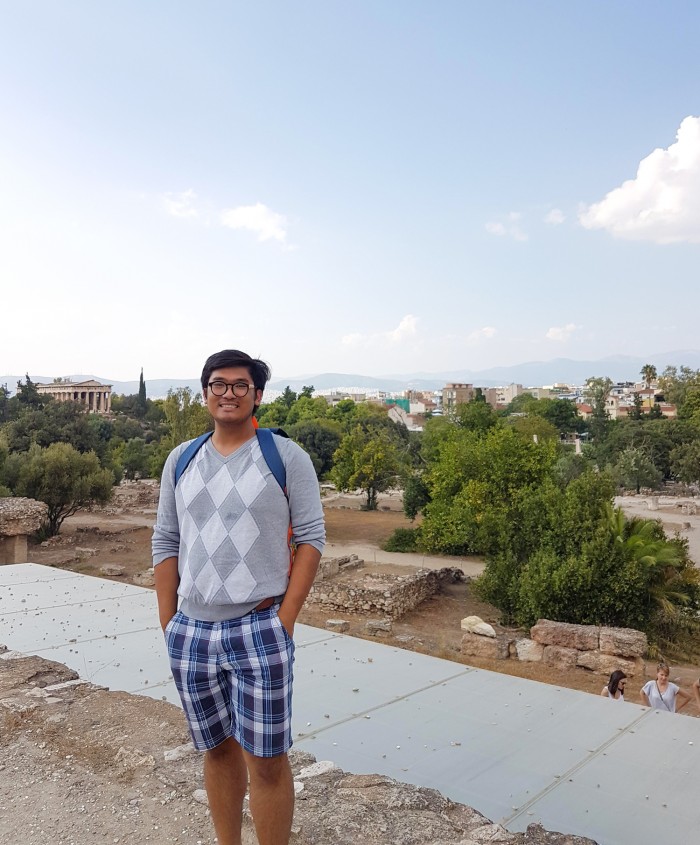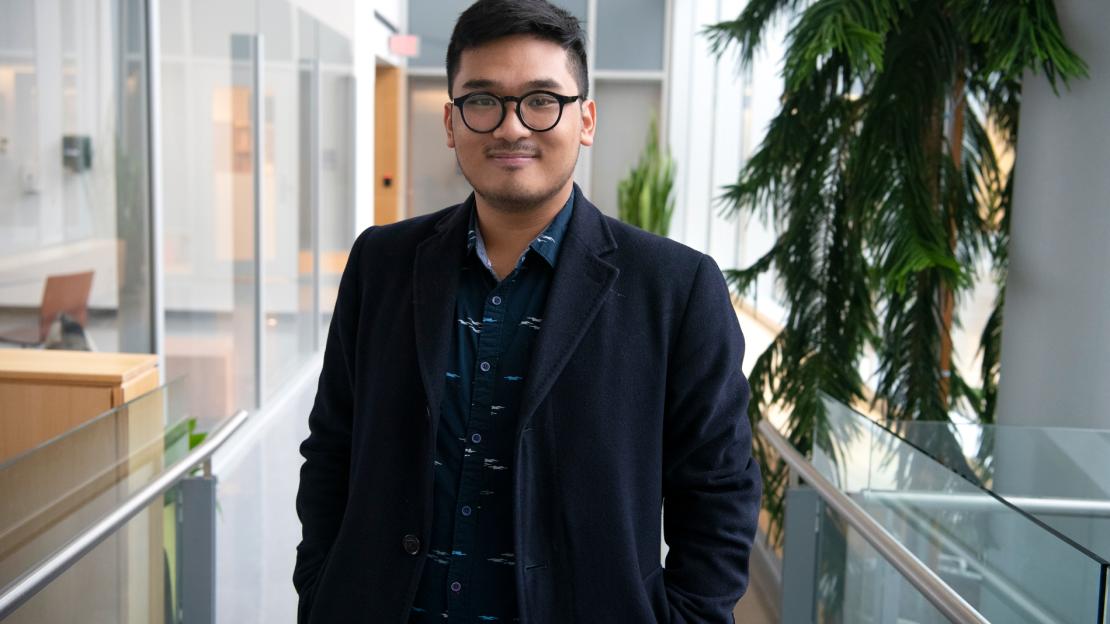What Joshua Atienza appreciates most about molecular biology is that it’s challenging how we think about conventional medicine.
Since he began his undergraduate studies at U of T Scarborough, he was fascinated by how molecular changes can have an impact on health.
“Pursuing science and medical research involves the aim of improving someone’s life and managing certain diseases,” says Atienza, a fourth-year molecular biology and biochemistry student. “Being a part of those steps count.”
Atienza currently works in the Schulze Lab at The Hospital for Sick Children. His research looks at the underlying genetic and molecular mechanisms in creatine deficiency syndromes, such as GAMT deficiency –– a disease that affects the muscles and brain.
Atienza’s research examines how creatine, a supplement commonly used by athletes, combined with drug inhibitors can be used to control its biosynthesis –– the process by which creatine is formed in the cell. This research can offer insights into the ways early diagnosis and treatment of pediatric patients can prevent developmental delay and muscle weakness.

With help from the Academic Travel Fund, Atienza presented the research initiatives of the Schulze Lab at the annual symposium of the Society for the Study of Inborn Errors of Metabolism (SSIEM) in Athens, Greece, this September.
The non-profit organization brings international professionals who focus on inherited metabolic diseases from more than 30 countries together in one room to discuss their research and insights.
This year’s convention emphasized how progress in basic science research can be translated to improve patient diagnosis and prognosis.
Despite being a part of the experiments and research presented at the convention, preparing to speak in front of international clinicians and researchers, especially as a co-op student, involved a lot of reading and meetings with Dr. Andreas Schulze and the lab to outline the essence of their current research efforts for a global audience.
“Having opportunities such as these are fulfilling,” Atienza says. “It's an inspiration to keep questioning your own work and how you can improve it.”
While he only had nine days in Athens, Atienza says that these experiences abroad help anyone “learn within other cultures and contexts.” He admitted he wasn’t exactly sure what his experiences in Athens would be like, but adds that international learning is something he encourages.
“As a student, it's important to take risks and believe in yourself that you can take those risks,” Atienza says. “Recognize when opportunities come your way and believe that you are worth the experience.”
Having support from programs like the Academic Travel Fund is something he says makes taking those risks possible.
“What I often say is that in your university experience, it’s important that your university supports you and is interested in your pursuits.”
